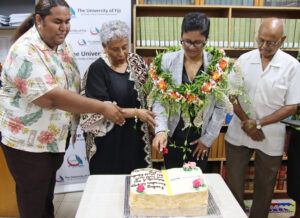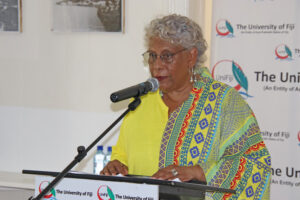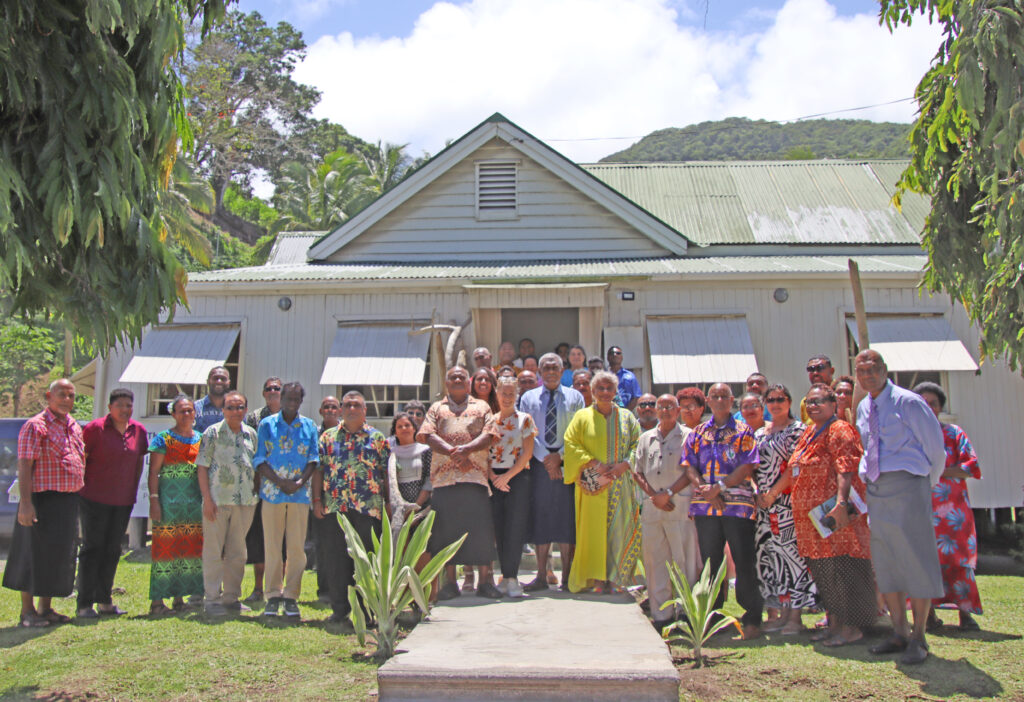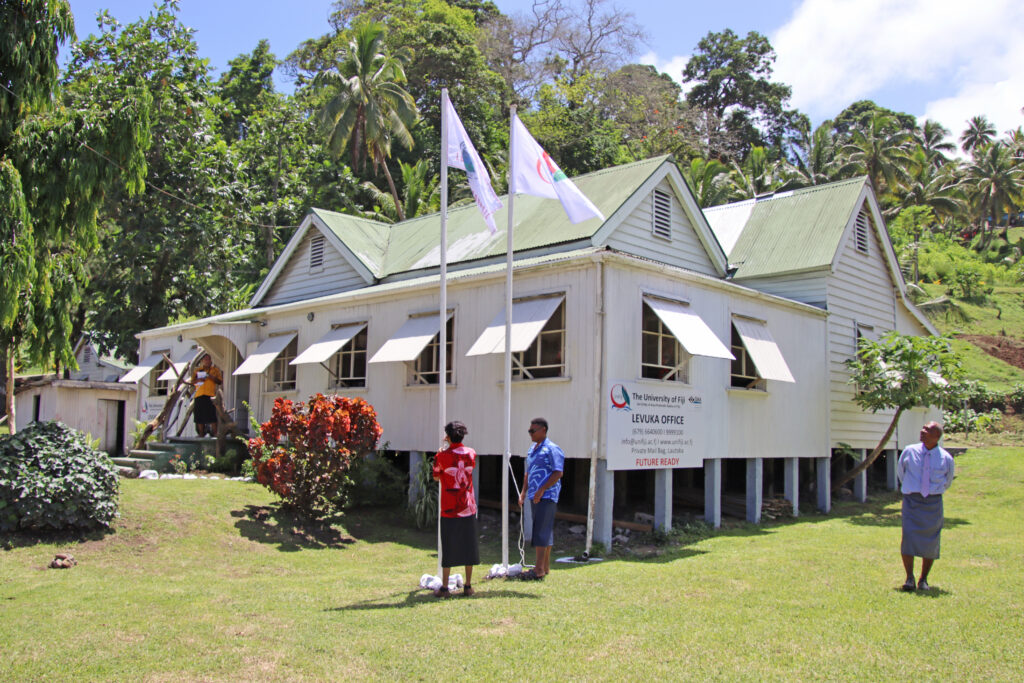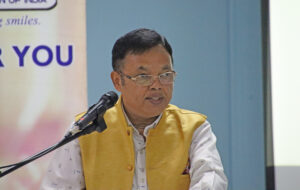World Education Day 24th January 2025: Recreational Reading in the Park National Campaign
The University of Fiji today officially launched its ‘Recreational Reading in the Park National Campaign’ in partnership with local government involving town and city councils throughout Fiji. The event commemorated the United Nations World Education Day which is held on 24th January every year.
Chief Guest at the launch was the Director of Local Government, Ms Bindula Devi, an avid reader herself. The event was held in the Library of the Samabula Campus of the University.
In launching the partnership between Local Government and the University for the Recreational Reading in the Park Campaign, Ms Devi said that the two significant facets of Fijian life: ‘municipal councils and the expanding opportunities for recreational reading in our parks’, are areas that have the potential to improve the lives of all Fijians and are essential to the health of our communities.
“Parks and green spaces have panned out to be nothing short of healing spaces for individuals by giving them direct access to natural greenery.”
She highlighted that there is a great opportunity for the local Councils to promote and support leisure reading in our parks.
“The Municipal Councils are gradually evolving with changing times. The much needed programme by the University of Fiji will prompt the Councils to have more recreational parks and facilities, beautify them and maintain their parks and green spaces. The way forward is to make parks more inclusive, bring in technology and reimagine features.”
In her opening remarks Vice Chancellor Professor Shaista Shameem said that she and other educators were fully aware that learning came from books and not the classrooms. “In the classroom all we do is ensure that our students know what is contained in the books, discuss the ideas and expressions, and remember them. That’s all we do as teachers- we merely facilitate transfer from the books to the student in an environment where that learning can be absorbed properly”.
Speaking from experience as an educator of more than 30 years standing, Professor Shameem said that teachers should stop thinking of themselves as more important in education than they actually are. Books are much more important, she said.
From books children as well as adults get a worldly education because reading opens everyone’s minds and hearts to knowledge. “It makes us learn that we are not the only human beings in the world, and that the human spirit is universal. We learn that power or authority is transient. We learn that no matter how dominant at a particular point in history certain individuals have been- such as those who look like they’ll forever hang around and cause havoc, like Hitler, Stalin, Mussolini, Idi Amin, and so many others past and present, they too eventually cease to exist’’ she said.
Books also teach us that history repeats itself, and sometimes very dangerously. But that, given time, love and consideration will overcome what Pope Gregory- Gregory the Great- described as the seven deadly sins- pride, greed, lust, envy, gluttony, wrath and sloth.
“Books show us that civilizations that do not practice public good will eventually perish, as Imperial Rome did a long time ago. They make us aware that big brother is watching us, nowadays through technology and cameras on every corner; that human values are more sustainable than our bank balance, property portfolio or wealthy clients; that the planet is worth saving from those who are greedy and extractive of earth’s bounties; that men are not more important than women in the maker’s eyes; that lawyering is not necessarily a noble profession for all; and that reading gives us refuge from the harshness inflicted on us by those in authority who uphold and defend naked, exploitative power, where evil masquerades as good”.
Professor Shameem says that all these ideas are what we learn books such as Animal Farm and 1984 by George Orwell, To Kill a Mockingbird by Harper Lee, The Pearl by John Steinbeck, Lord of the Flies by William Golding, Bleak House by Charles Dickens, and Mother, by Maxim Gorky. Most importantly, she said, for Fijians, Cry the Beloved Country by Alan Paton, should be read again as it was written in the pre-apartheid era in South Africa as a sign of things to come, but offering a human values alternative.
While the R for R Campaign was for the whole nation, Professor Shameem said that the University was taking its delivery to the municipal parks through local government. “Read global, act local is our slogan because it is clear internationally that it is local government that is the focus of all effective innovation in, and governance of, communities.” she said. “For most ordinary people, national government everywhere is not only too remote from the daily realities of their lives, it is intemperate at times and, more often than not, full of melodrama. People feel more and more strongly that central governance is not as effective as local governance when it comes to having their voices heard”.
Professor Shameem said this means the place where people pay their rates, or where their rubbish is collected, or where the drains are cleaned up to prevent flooding of the footpaths, or where the children’s parks are located or, most importantly, where they can find their local representatives to demand services. “Local, not national government, is where we go to first to have our problems in our towns and cities, and indeed our community issues, sorted”
The University reached out to local government for partnership in the recreational reading in the park campaign, not only due to the councils’ importance in civic life but also because municipal councils own the parks where children play or where the grandparents meet up with their friends for a talanoa under a shady tree.
She said said the University was also grateful to the municipal councils’ Special Administrators for readily identifying a space in their municipal parks for recreational reading every Saturday from 2-5pm and for offering oversight to ensure quiet reading can take place. University staff will also be present to assist as the campaign kicks off.
Professor Shameem said that the campaign launched on the Universal Day of Education was activating a reading revolution with the movement spreading throughout Fiji in all public parks where people can just sit and read, make new friends with other bookworms, help nurture the next generation of readers by example, and change the world for the better by reading about how others did it in other places, or even in someone’s imagination, “for our people, our places and our planet”.
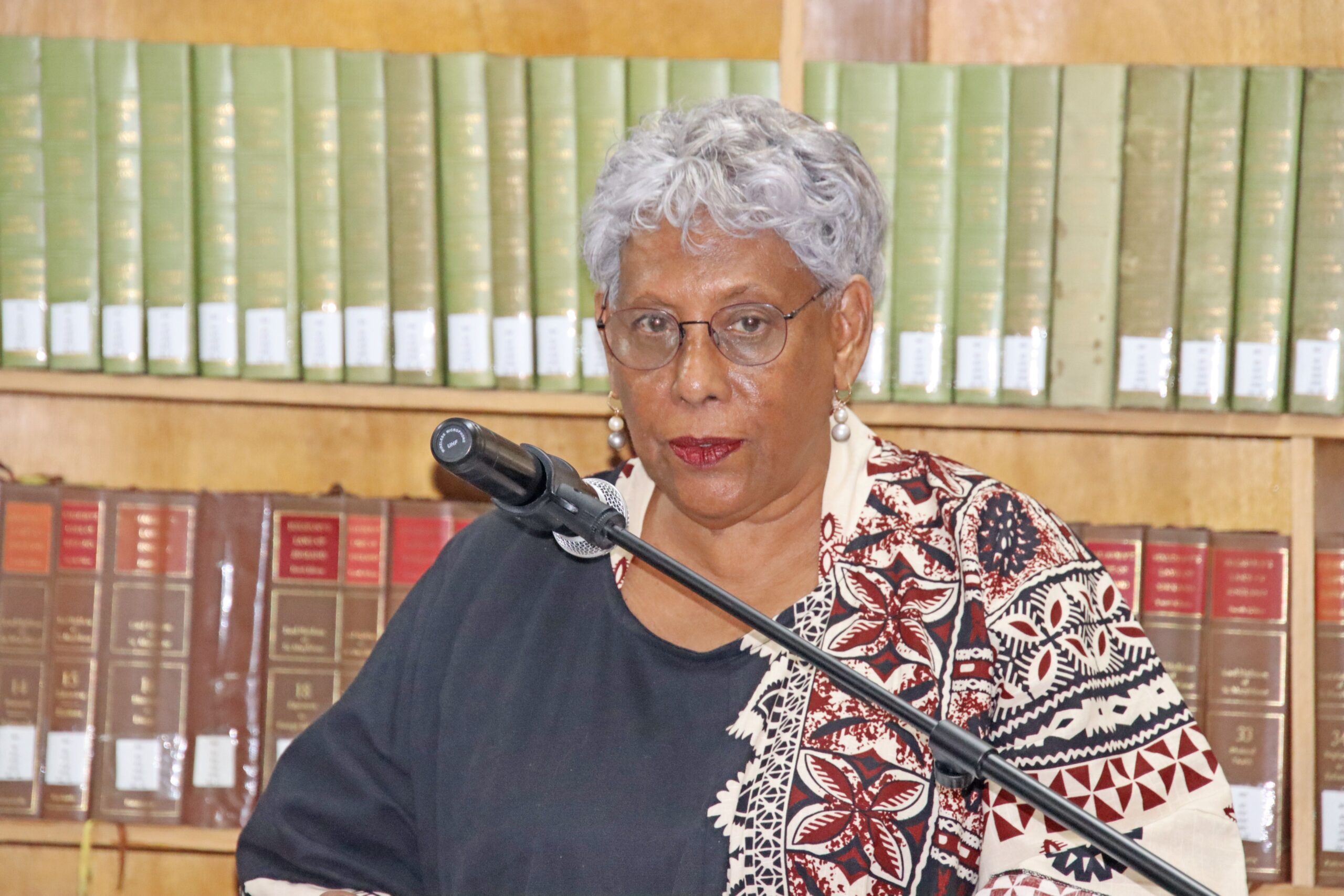
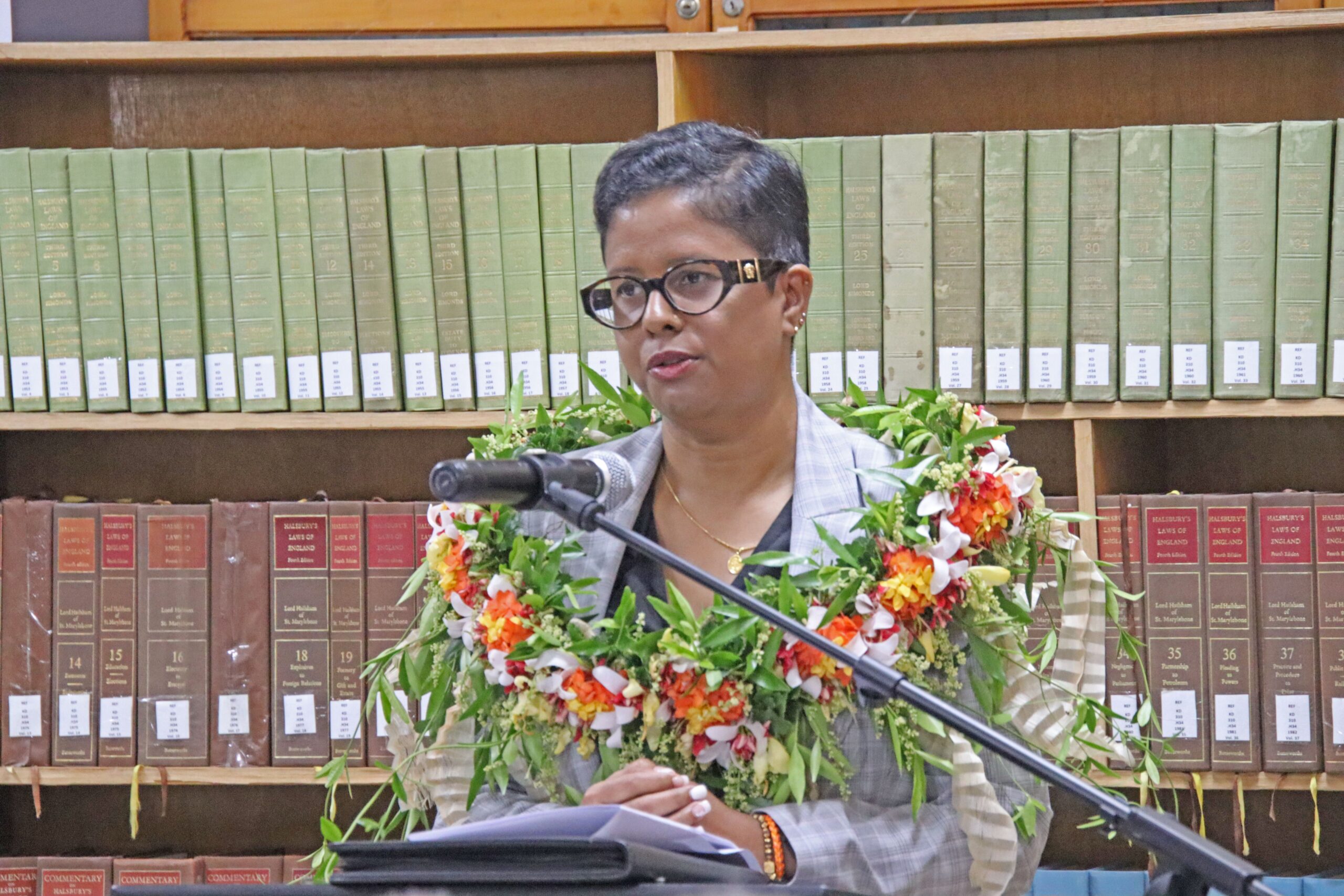
![]()

